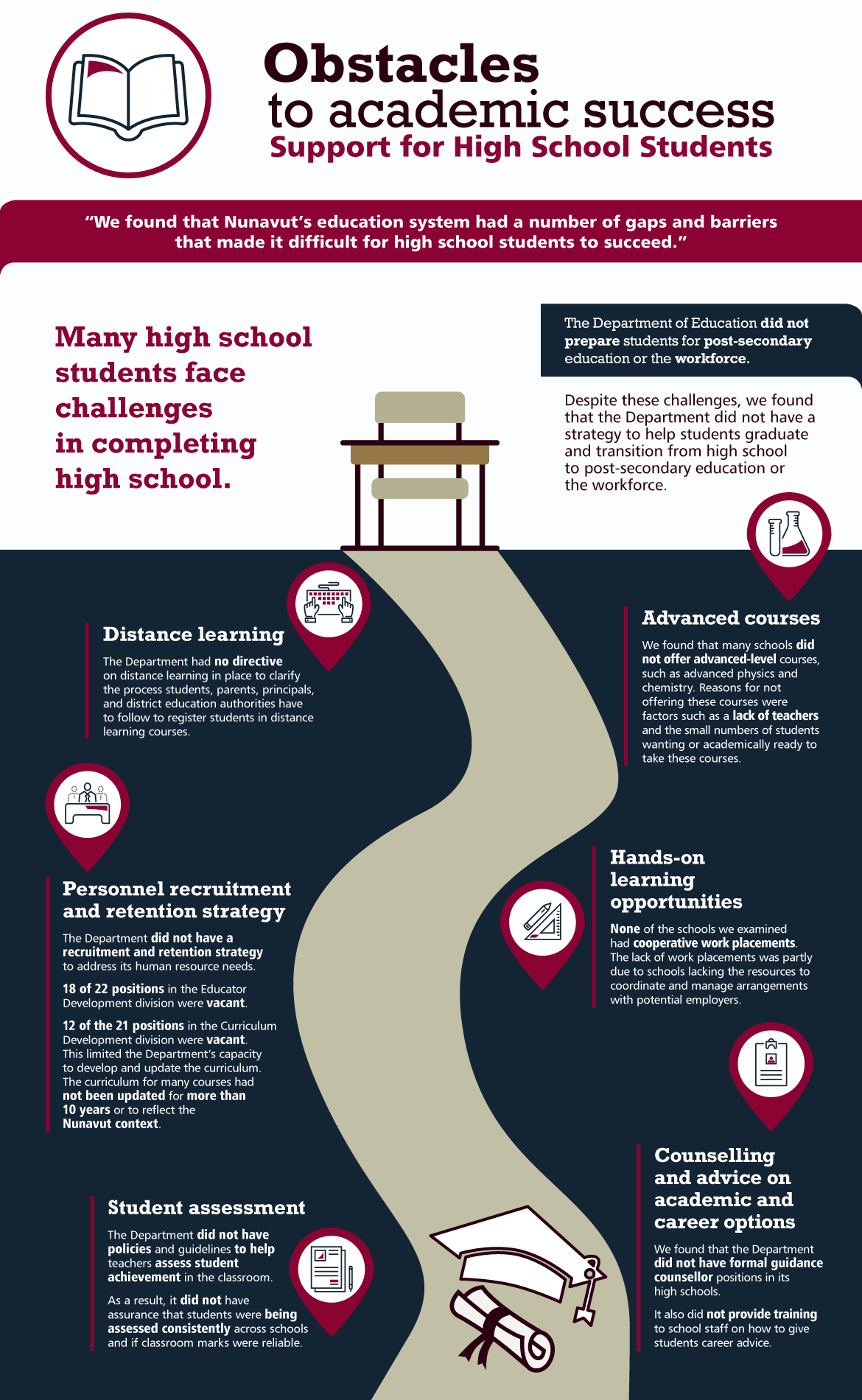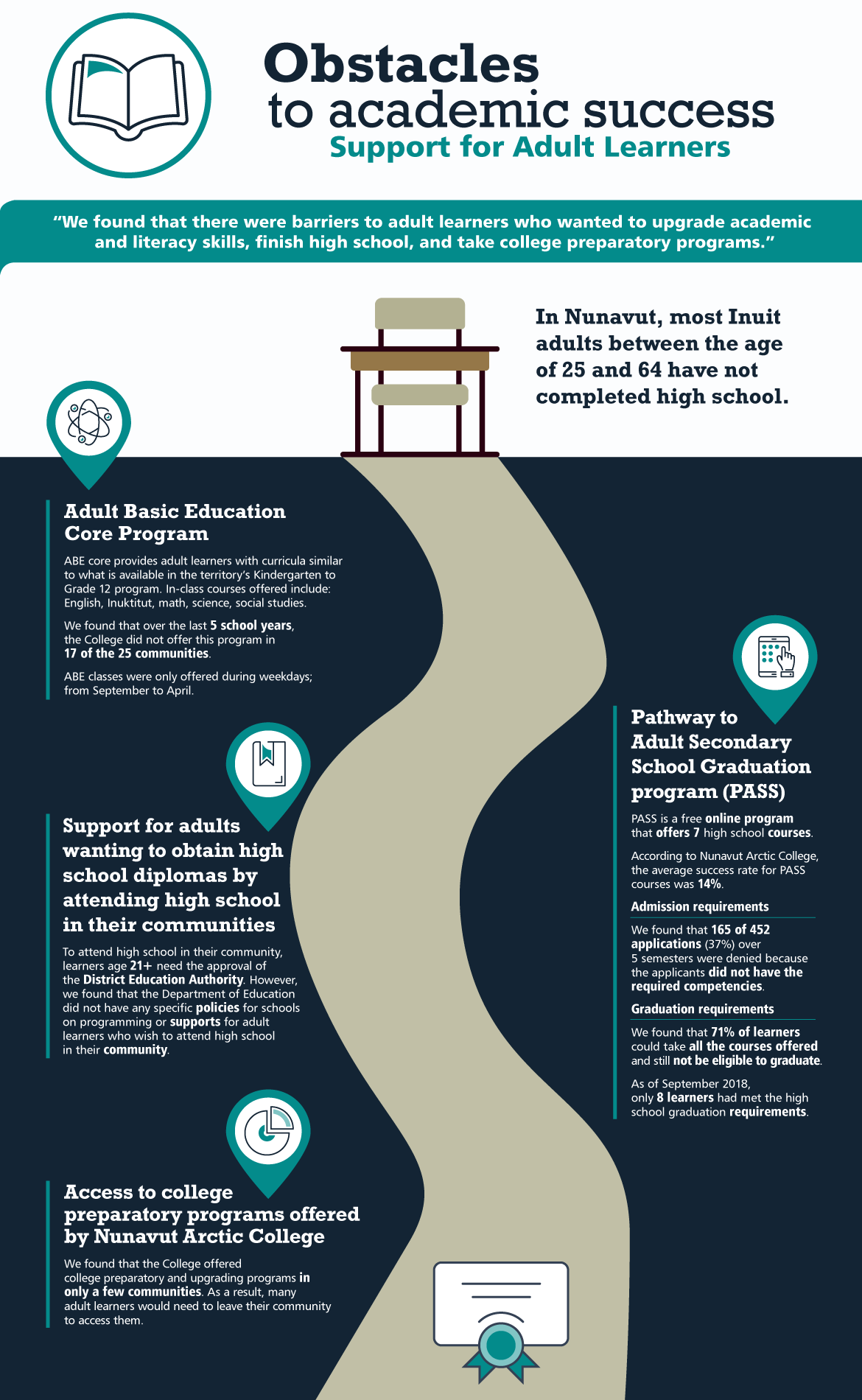Support for High School Students and Adult Learners
At a GlanceSupport for High School Students and Adult Learners
What we examined (see Focus of the audit)
This audit focused on whether the Department of Education, Nunavut Arctic College, and the Department of Family Services adequately supported youth and adult learners’ transition from high school to post-secondary education and employment.
Why we did this audit
This audit is important because education is important to the well-being of individuals and Nunavut as a whole. Well-educated citizens are more likely to be productive, healthy, participating members of society and communities. Citizens whose education is limited face fewer opportunities for jobs and civic participation. As a result, it is critical that the education system work well for all students, including high school students and adult learners who want to further their education.
Overall message
Overall, we found that Nunavut’s education system had a number of gaps and barriers that made it difficult for high school students and adult learners to succeed academically and transition to post-secondary education and employment. Many high school students needed more than one year to complete a grade, which extended the time required to complete high school, with many leaving school before graduating. Addressing the challenges faced by high school students requires contributions from many stakeholders. However, we found that the Department of Education did not have a strategy that outlined actions it and other partners could take to help students graduate and transition from high school to post-secondary education and employment. Furthermore, despite difficulties hiring and keeping staff, the Department did not have a recruitment and retention strategy to address its human resource needs.
Only two of the seven high schools we examined had teachers assigned to help students navigate the challenging path to post-secondary education and employment. Students were being offered hands-on learning experiences, but few had work placements or cooperative opportunities that could be used to expose them to workplaces and occupations. Moreover, the territory’s sole post-secondary institution, Nunavut Arctic College, undertook only limited outreach to inform high school students of its programs, and program information on its website was out of date.
We also found that adult learners who wanted to upgrade their literacy and other academic skills faced barriers. For example, to enrol in the territory’s online adult high school diploma program, learners needed to have minimum literacy skills, which more than one third of applicants lacked. Yet the adult basic education program that allowed adult learners to improve their literacy skills and become eligible for the online diploma program was not offered in most Nunavut communities in the past five years.
According to Nunavut Arctic College, many applicants required academic upgrading to be eligible for its programs. We found that the College offered preparatory programs, but because of funding constraints, it could offer them in only a few communities. As a result, many adult learners would have to leave their communities to access these programs. Access to the territory’s financial aid programs for selected adult learners was limited. For example, financial aid was not available to adult learners taking part-time programs, adults taking high school courses, and learners taking most adult basic education courses. This limited access to financial aid could be a barrier for adult learners who wish to further their education.
What we found about …
High school students
Adult learners
Entities Responses to Recommendations
The audited entities agree with our recommendations and has responded (see List of Recommendations).
Related Information
| Report of the | Auditor General of Canada |
|---|---|
| Type of product | Performance audit |
| Audited entities |
|
| Completion date | 2 April 2019 |
| Tabling date | 4 June 2019 |
| Related audits |
For more information
Media Relations
Telephone.: 1-888-761-5953
E-mail: infomedia@oag-bvg.gc.ca

